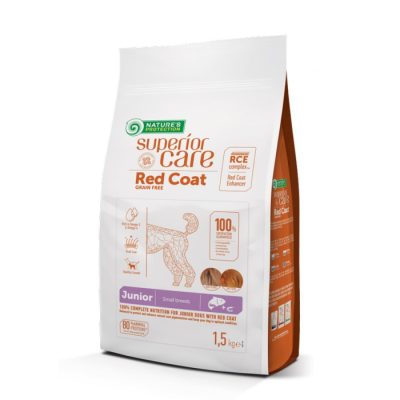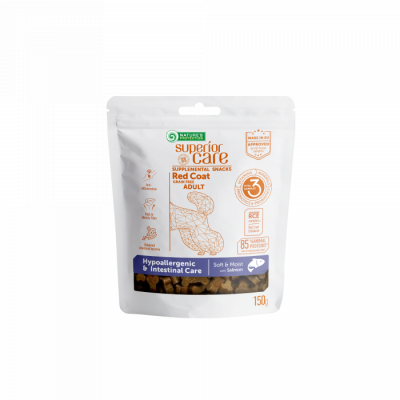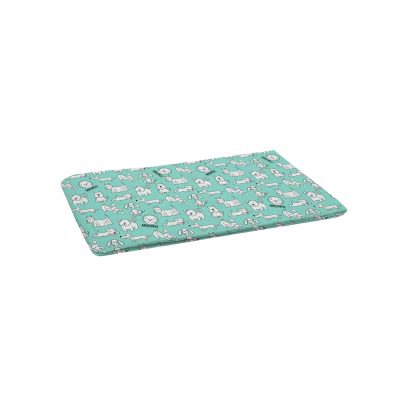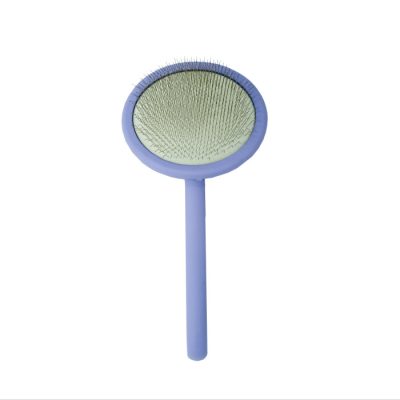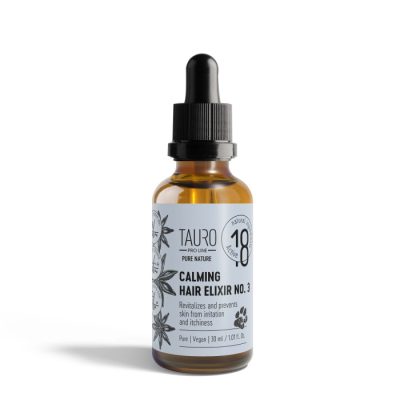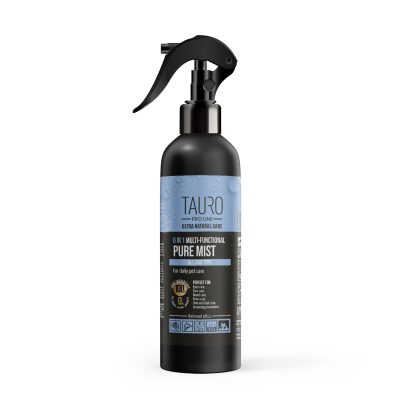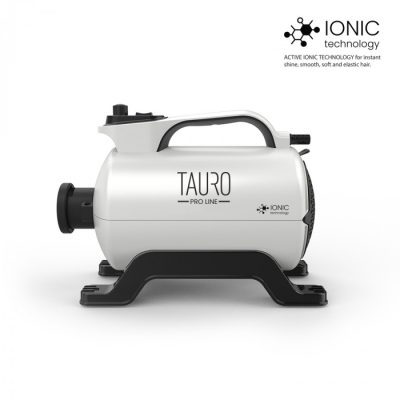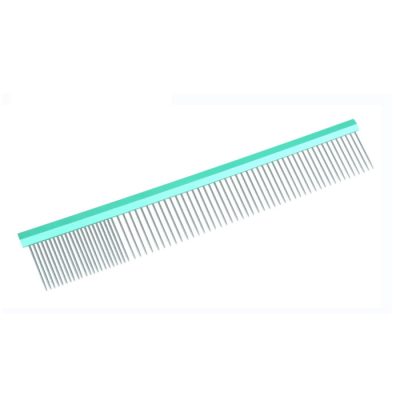POMERANIAN SPITZ
Dog breed characteristics & care
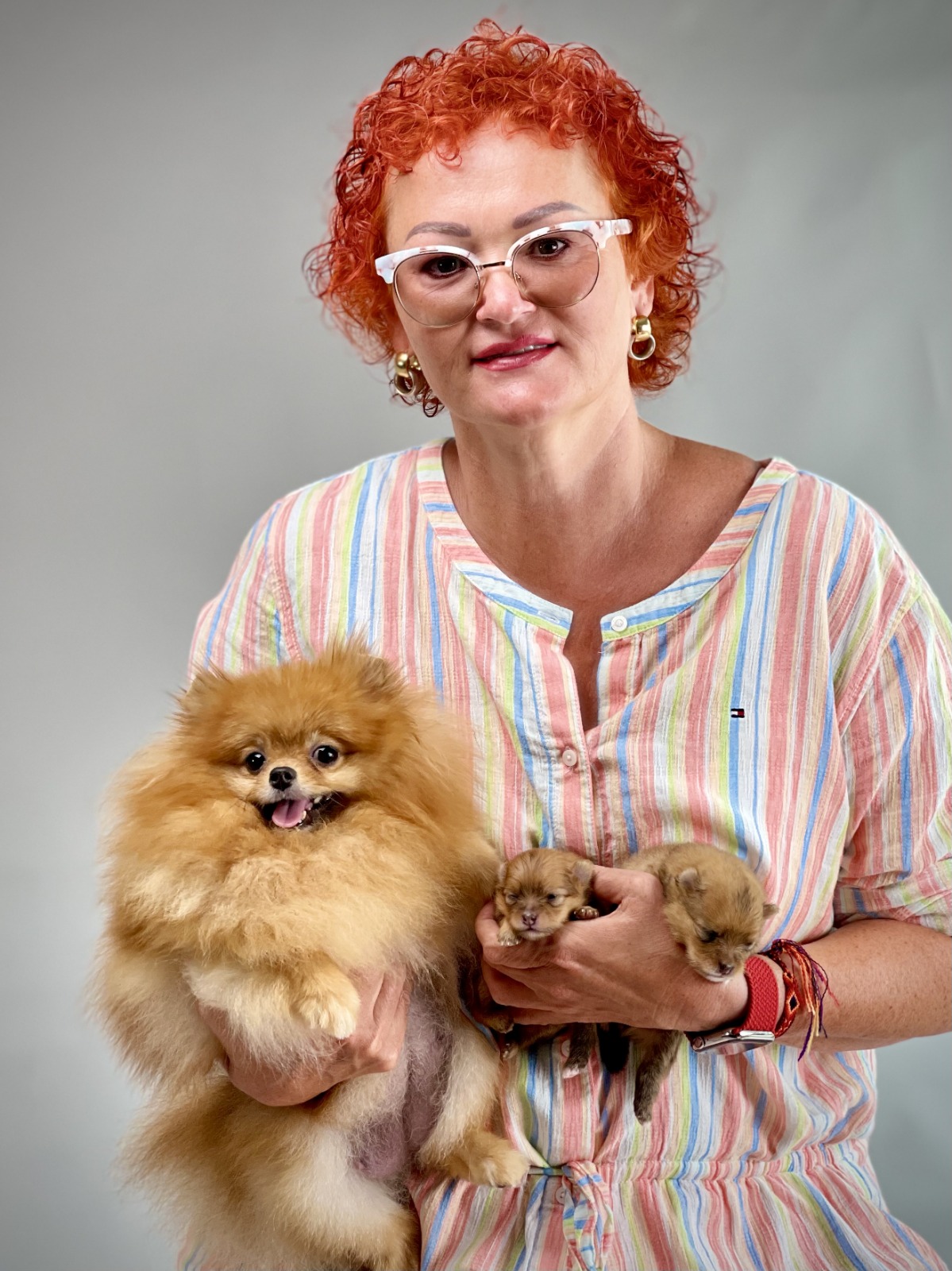
Table of Contents:
CHARACTER
APPEARANCE
BREED CHARACTERISTICS
HEALTH, CARE, TRAINING
PAPERS PROVE THE BLOODLINE
DOG WITHOUT PAPERS
NUTRITION
Frequently Asked Questions
Pomeranian Spitzes, also called German Miniature Spitzes or Pomeranians, are small, decorative breed dogs that look like little fox cubs. The distinctive feature of these dogs is their lush and dense coat, which gives them elegance. The Pomeranian Spitz is a friendly and intelligent dog that gets along well with children and other animals.
The name of the breed was given according to the region from which these dogs originated (Pomerania, Central Europe). Spitz is a relatively old dog breed that was mentioned in German literature as early as the middle of the 15th century. The majority of Spitzes were bred by German breeders (with the exception of the small and dwarf breeds, which are the merit of British breeders). It is believed that the ancestors of the Pomeranian Spitz were working dogs of the Arctic region. Today, Pomeranians are classified as "toy" dogs because they are very small.
CHARACTER
The Pomeranian Spitz is a great companion, suitable for both a single person and a family. They are active, playful, friendly pets. They are very loyal to their family and love all members equally. They love the attention of their owners, willingly allow themselves to be petted, picked up or carried. But although the Pomeranian Spitz is a friendly dog, it can quickly become irritated, bark at strangers or other dogs, and become dominant. Socialization, training and responsible behaviour of the owner by drawing certain limits of permissible behaviour helps to avoid these vices early on.
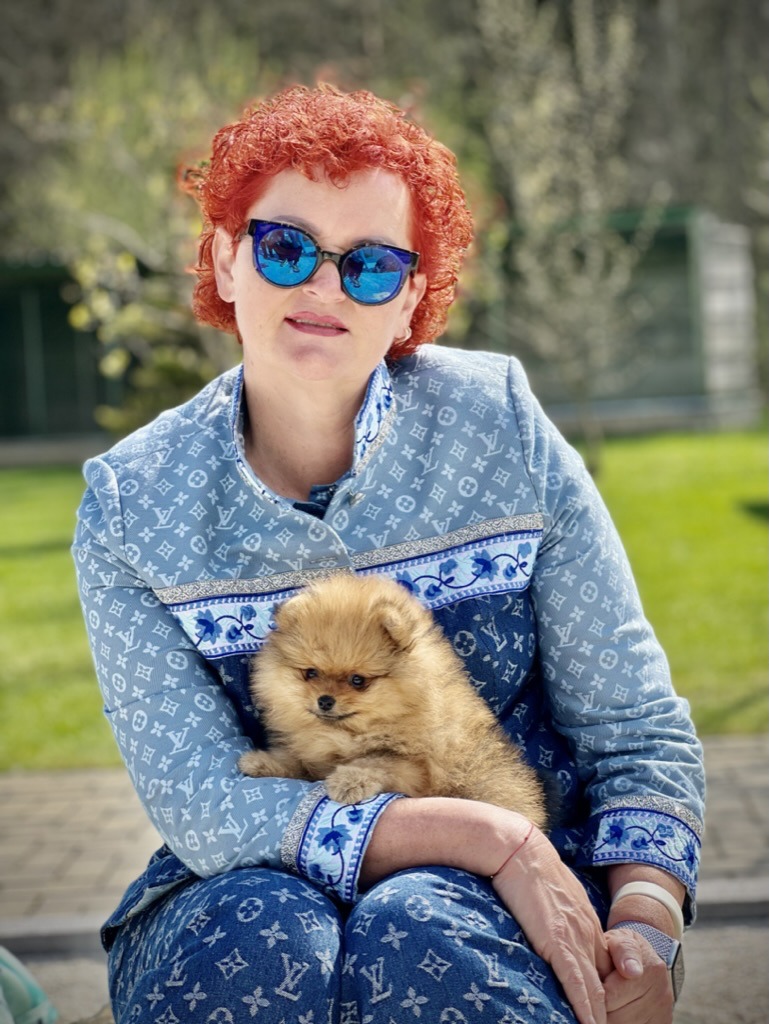
APPEARANCE
Pomeranian Spitzes are classified as a toy dog breed. The body of the Pomeranian Spitz is square-shaped, the muzzle is pointed, resembling the muzzle of a fox and the ears are small and erect. The eyes are oval, alert, dark in colour. The tail is of medium length, grows high and is raised above the back. The coat of Pomeranian Spitz is double - the top layer is dense and long whereas the undercoat is short, very dense and soft. The coat is very fluffy, voluminous, giving the dog elegance. Lush coat on the shoulders and neck forms a "collar", the tail and hind paws are covered with dense coat as well. Hair growing on the back and sides is shorter than on the other parts of the body.
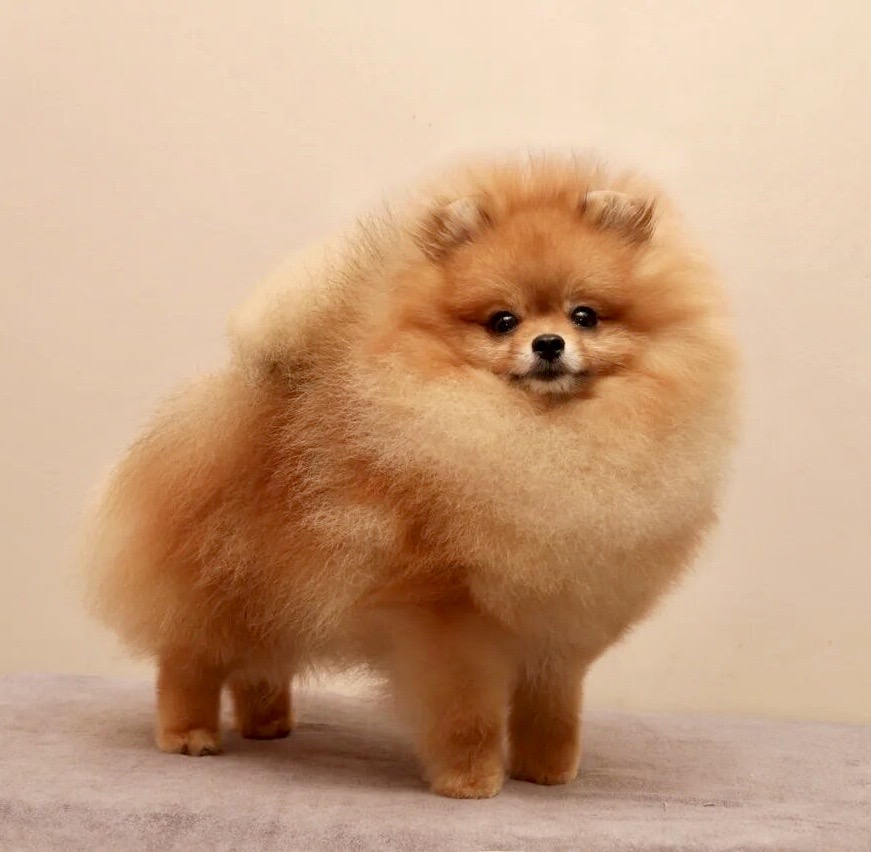
BREED CHARACTERISTICS
Height
Male 22-27 cm
Weight
2-3 kg
Life expectancy
13-15 years
Coat colour
Orange, sable, black, brown, cream
Character traits
Sociable, cheerful, friendly, intelligent, alert, playful
Hypoallergenic
No
Group
FCI group 5
Origin
Europe
HEALTH, CARE, TRAINING
Pomeranians are a relatively healthy breed of dogs, but certain health problems are possible. Some of the most common problems are: loose kneecaps, brittle teeth, eye diseases, low blood sugar, trachea diseases that can cause coughing. Although some health problems are hereditary, some of them can be caused by improper care: irrational diet, lack of hygiene and/or grooming, etc. The coat of Pomeranian Spitz requires responsible care: regular bathing, combing, especially during seasonal shedding, grooming every 1-2 months (it is advisable for a professional pet groomer to perform the procedures). Very dense combs are not suitable for combing, as they can damage the undercoat.
These are highly intelligent dogs, very receptive to training and able to learn various tricks. The most important thing is proper motivation and turning the training into a game.
Main tips how to take care of Bichon Frise:
These are highly intelligent dogs, very receptive to training and able to learn various tricks. The most important thing is proper motivation and turning the training into a game.
Main tips how to take care of Bichon Frise:
- brush the coat few times per week
- during coat changing time bath one time per week
- visit grooming salon one time per month
PAPERS PROVE THE BLOODLINE
- Documents guarantee a lower probability of hereditary diseases
- The documents guarantee that you are buying a noble representative of the breed, which is visible in the genealogical tree
- The documents guarantee that you are purchasing a puppy from a responsible breeder
- You can receive advice from the Kennel team on raising and caring for your pet
DOG WITHOUT PAPERS
- When breeding "unselected" representatives of the breed (dogs without pedigree documents), certain modifications are possible, which can lead to significant changes in the breed's exterior and character
- The puppy might be sick and mentally unstable
- You do not have the opportunity to have consultation with your dog's breeder
- You will not be able to participate in dog shows
NUTRITION
Like most other toy dog breeds, Pomeranians should be fed dry food and treats designed for small breed dogs. These dogs have fast metabolisms, quickly burn energy, and because of their small stomachs, they need to eat in little amounts and often. The feed must be of high quality, non-allergenic, easily digestible, suitable for an active pet.

Frequently Asked Questions
Give your puppy an anti-worm medication every 1 month until they are 1 year old. From the age of 1 year old - give every 3-4 months. If the pet is going to live with other animals and will be having very frequent contact with them, then even when the dog is an adult, give anti-worm medication every 1-2 months. with a repeated treatment after 10 days.
If you give treats from your table or the puppy eats something inappropriate outside, it may start to have diarrhea and/or vomiting. Diarrhea can also be caused by too much food or fatty products. Diarrhea and/or vomiting causes the dog to lose nutrients from the diet, which can lead to the pet feeling weak. To prevent this from happening, supplement the pet's diet with Nature's Protection Microzeogen. It will help remove toxins, regulate the intestinal microflora and help the pet to regain its strength.
Eating feces is not a problem since most young puppies do. However, it carries the risk of contracting various parasites. If your pet eats feces, give your puppy Nature's Protection Stop Stool Eating supplement, which can help to maintain proper stomach acidity and protect the digestive tract from irritation, which often causes pets to eat feces.
There can be several reasons for it: there might be some hair that have been left in the coat after the coat has been trimmed that tickle the skin. In this case, comb the puppy well, if necessary - bathe it again. Due to experienced stress, for example, after a change of environment, first car journey, etc. Allergies - there may be allergies to food, dust (which usually collects in the carpets), medicine, allergy inducing treats. If the scratching is of nervous nature, vaporize essential oils with calming properties (lavender, special essential oil blends) by adding a few drops to an aromatherapy diffuser. If the dog is scratching for a longer time, look for the source of the allergy and eliminate it. Bathing with Tauro Pro Line Elixir No. 3 will help soothe skin irritation. Add 15-20 drops to shampoo or conditioner and bathe the pet. A skin-soothing treatment in an ozone bath can also help. Procedures are performed in all KIKA grooming salons and in the Tauro Grooming Academy SPA salon in Kaunas.
There is no 100% protection, but you can use 5 levels of protection consisting of 1 veterinary remedy and 4 natural remedies to achieve the best protection. Veterinary remedy can be drops, which protect up to 1 month or a chemical collar, which protects up to 8 months. Natural remedies can include a natural collar, essential oils or their mixtures, an ultrasonic pendant, sprays, foams for coat and shampoos. These tools should be used often or every time you take your pet for a walk.

